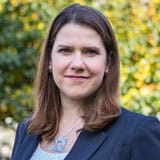Looking round the lush garden courtyard amidst the grand yet charming buildings of Jesus College Cambridge, it was an amazing sight to see dozens of people who I’d only ever met through the cramped confines of a zoom box on screen. P4NE’s first in-person Gathering since 2018 brought together more than 90 researchers, campaigners, academics, creators, policy wonks, communicators, funders, writers and inspiring leaders.
The three days produced many memorable moments, from learning more about our interconnections with the help of a massive ball of string, to the spontaneous post-dinner invitation from one group to karaoke & bowling, to the stunning spoken word poem about our discussions. I was also thrilled to see my predecessor Leslie Harroun join us, given how much P4NE owes to her imagination and astute grant-making during the first five years.
More than one person asked me what P4NE wanted to get out of the event, and it seemed slightly evasive to say I didn’t know precisely. But this was more about relationship-building and generating a sense of common endeavour across an intentionally broad mix of people, than about hitting any specific KPI target. Over the last two years observing, learning and supporting organisations working towards a new economy it is clear that there is huge energy, and also that it is dissipated, at times uncertain.
Trying to birth a new economy can feel like a lonely mission in many settings. The audacity of the goal can be hard for people to grasp, that we’re not talking about tweaking finance to make it greener, or simply accelerating action on climate pledges. Net Zero is not enough. The economic transformation has to encompass a new mindset about our place in the natural world, and our responsibilities to each other, thinking differently about how and why we do things, and what we value. At heart, rethinking what is a good life and how we organise our societies to make it accessible to all, both now and in the future. Sometimes it seems so huge a topic that it’s hard to get your head around. Inevitably making progress will require multiple changes across sectors, increments towards a better version of existing systems, while also lifting up totally new ways of doing things.
Last year Demos Helsinki published their “Turning the Tide” landscape report on the new economy in Europe. It identified a need for more alignment between new economy actors, and simultaneously a need to keep a pluralist approach. I don’t believe there is a single roadmap that can be drawn up and just rolled out. I think change is much more likely to be emergent, taking advantage of opportunities that arise as the window of possibility shifts, deploying different narratives and emphasis in different places. To be clear, ‘emergent’ doesn’t mean it somehow just happens all by itself. On the contrary, all the major social progress that we have seen has been the product of years or decades of work by many people: dedicated, organised and resourced.
With the new economy, I feel we are also still exploring different parts of the answer. There needs to be the space and enough diversity of approaches and ideas for that discovery to happen, along with enough of a shared sense of collective mission that the various elements can reinforce one another. At P4NE we also see that there are currently many more brilliant people keen to work on creating a new economy than there are resources to support them. Part of our role is reaching out to other funders who are not yet choosing to engage in the transformation our economy needs. Through research, new funder networks and events we are working to widen the pool of potential funders.
Lots of rich insights, data and feedback were generated at the Gathering. We hope to continue sharing outputs from the Gathering in the coming months, offering a range of other hosted and curated sessions and continuing our monthly roundup to try to build links and understanding across the field. We know the field is not as representative as it needs to be – at the moment rather skewed towards middle class white people working on policy in the Global North. This will form part of our thinking about how we convene and discuss in future, aiming to involve more people with varying perspectives and from more countries. The loosely structured time on Friday morning to enable the field to set its own agenda was something we will definitely look to repeat – and expand.
On a final note, the setting of Jesus College produced one further insight for me, on the day when we went for a nature walk. Aiming for the route marked on the map that skirted the outside of the college grounds, I tried in vain to find a way out of the College at the back. It prompted me to consider the undoubtedly special environment, a calm oasis for centuries filled with lofty thoughts of learning, which enabled an escape from daily pressures to find space to think more deeply about our work.
Such colleges are also literally gated communities, separated from the rest of the world even as they shape the minds of the elite, hence the ‘ivory towers’ critique of academia. To build the world that those of us gathered in Cambridge seek, we need both approaches. We need to make the time to pause, reflect, strategise and nurture meaningful connections with one another. We also need to face the current crises, and ensure our vision for the future also offers to make life better today.
Back to Stories

